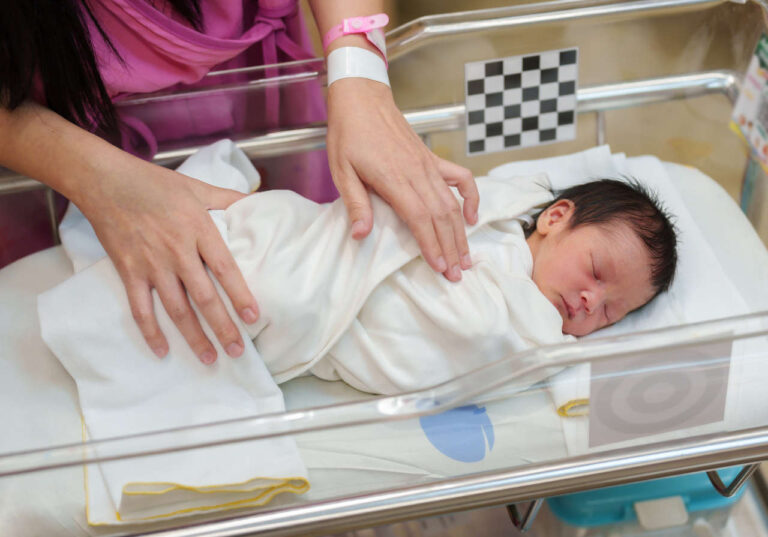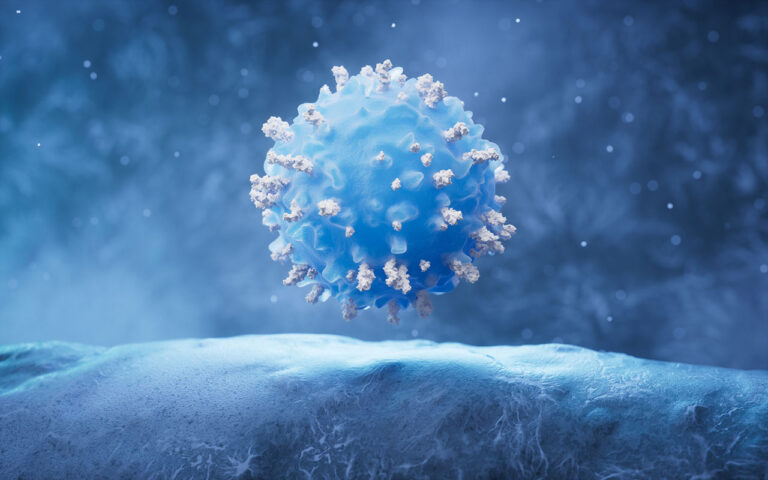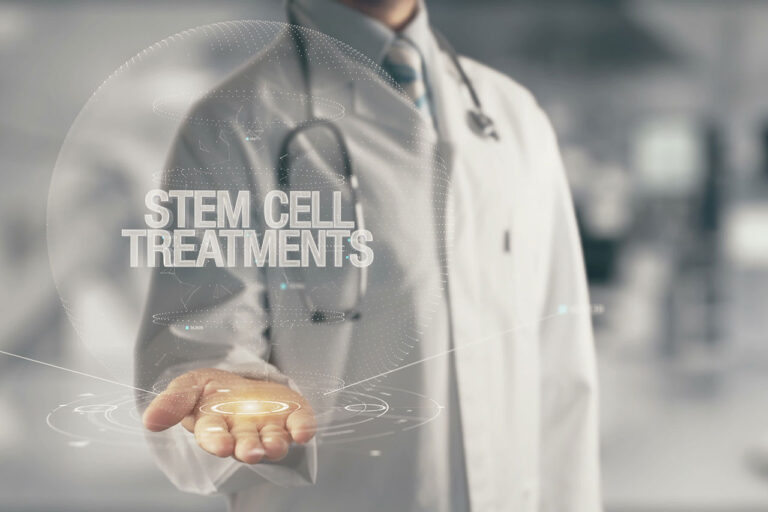
Bệnh thừa sắt ở trẻ sơ sinh (NH) là một tình trạng cực kỳ hiếm gặp và đe dọa tính mạng, gây tổn thương gan ở thai nhi đang phát triển. Trẻ sơ sinh mắc bệnh thừa sắt ở trẻ sơ sinh thường sinh non (rất sớm) hoặc khó phát triển bình thường trong bụng mẹ trong suốt thai kỳ.
Nhận liều IVIG của bạn – Truyền dịch tại nhà
Nếu không được điều trị, tình trạng này có thể dẫn đến thai chết lưu vào giai đoạn cuối thai kỳ hoặc trẻ sơ sinh tử vong sau khi sinh do tổn thương gan nghiêm trọng và tích tụ sắt trong cơ thể.
Liệu pháp IVIG đã được giới thiệu thành công tới cải thiện kết quả bệnh huyết sắc tố ở trẻ sơ sinh và có thể được sử dụng như một phương pháp điều trị trước khi sinh (trong thời kỳ mang thai) và sau khi sinh (sau khi sinh con).
Bài viết này xem xét những điều cơ bản về bệnh huyết sắc tố ở trẻ sơ sinh, cách bệnh này xảy ra và cách IVIG có thể được sử dụng như một liệu pháp mới để điều trị cho trẻ sơ sinh được chẩn đoán mắc NH và cải thiện tỷ lệ sống sót của thai nhi ở phụ nữ mang thai có tiền sử mắc NH trong những lần mang thai trước.
Bệnh huyết sắc tố ở trẻ sơ sinh: Tổng quan ngắn gọn
Bệnh thừa sắt (Hemochromatosis) là tình trạng tích tụ quá nhiều sắt trong cơ thể. Ở người lớn, bệnh thường do di truyền (còn gọi là bệnh thừa sắt di truyền) và tiến triển chậm. Tuy nhiên, bệnh thừa sắt ở trẻ sơ sinh là một tình trạng do miễn dịch gây ra trong thai kỳ (thường xảy ra vào tháng thứ tư).
Thai nhi trong bụng mẹ bị tổn thương gan nặng do miễn dịch đồng loại giữa mẹ và thai nhi, cuối cùng dẫn đến tích tụ sắt trong cơ thể và các cơ quan khác như tuyến tụy, tim và tuyến nội tiết.
Để hiểu vai trò của IVIG trong điều trị NH, trước tiên chúng ta hãy cùng xem xét sơ lược nguyên nhân gây ra bệnh thừa sắt ở trẻ sơ sinh.
Nguyên nhân gây bệnh Hemochromatosis ở trẻ sơ sinh
Nhiều bằng chứng nghiên cứu chỉ ra rằng trong 95% trường hợp, bệnh nhiễm sắc tố sắt ở trẻ sơ sinh là do tình trạng miễn dịch đồng loại giữa mẹ và thai nhi, một tình trạng được gọi là bệnh gan tự miễn dịch thai kỳ (GALD), trong đó kháng thể của mẹ tấn công các tế bào gan của thai nhi trong quá trình mang thai.
Mối liên hệ giữa miễn dịch đồng loại của mẹ và thai nhi với bệnh máu nhiễm sắc tố ở trẻ sơ sinh
Trong thai kỳ khỏe mạnh, hệ thống miễn dịch của người mẹ sẽ sản sinh ra kháng thể IgG (kháng thể của mẹ) đi qua nhau thai để bảo vệ thai nhi khỏi bị nhiễm trùng.
Trong một số trường hợp, các kháng thể từ mẹ này, thay vì bảo vệ thai nhi (em bé), lại nhầm lẫn các tế bào thai nhi là "vật lạ" và bắt đầu tấn công chúng, gây tổn thương cho thai nhi. Hiện tượng này được gọi là "miễn dịch đồng loại mẹ-thai".
Trong GALD (là nguyên nhân cơ bản gây ra NH), kháng thể từ mẹ đặc hiệu tấn công các tế bào gan của thai nhi trong thai kỳ, cuối cùng gây tổn thương hoặc tổn thương gan. Tổn thương này khiến sắt tích tụ trong cơ thể thai nhi, dẫn đến các triệu chứng của bệnh thừa sắt ở trẻ sơ sinh.
Nói một cách đơn giản, NH là kết quả của hệ thống miễn dịch của người mẹ tấn công gan của em bé trong thời kỳ mang thai do GALD.
Người ta ước tính rằng nếu lần mang thai trước của bạn kết thúc ở NH hoặc đứa con đầu lòng của bạn sinh ra mắc bệnh thừa sắt ở trẻ sơ sinh, thì là cơ hội xấp xỉ 90% rằng đứa con tiếp theo của bạn sẽ gặp phải tình trạng tương tự.
Do đó, các phương pháp điều trị trước và sau sinh được khuyến nghị để đảm bảo việc sinh ra một em bé khỏe mạnh và cải thiện tỷ lệ sống sót của trẻ sơ sinh mắc bệnh thừa sắt ở trẻ sơ sinh (NH) mà không cần phải ghép gan.
Nhận hỗ trợ đồng thanh toán IVIG
IVIG có thể giúp kiểm soát bệnh Hemochromatosis ở trẻ sơ sinh như thế nào?
Liệu pháp IVIG đã được chứng minh là cải thiện kết quả của NH khi được sử dụng làm phương pháp điều trị trước và sau sinh.
1. Sử dụng IVIG như một phương pháp điều trị trước khi sinh (trong thời kỳ mang thai)
Điều trị bằng liệu pháp IVIG có thể ngăn ngừa tái phát NH trong thai kỳ. Ví dụ, báo cáo trường hợp của một phụ nữ 32 tuổi có tiền sử NH trong những lần mang thai trước đã sinh một em bé khỏe mạnh sau khi được điều trị bằng IVIG (liều 1 mg/kg) hàng tuần trong tam cá nguyệt thứ ba cho đến khi kết thúc thai kỳ.
Tương tự như vậy, nhiều loại khác các nghiên cứu điển hình báo cáo rằng việc điều trị bằng IVIG ở tuần thứ 14, tuần thứ 16 và hàng tuần từ tuần thứ 18 cho đến khi kết thúc thai kỳ có thể ngăn ngừa sự tái phát của NH Và tăng tỷ lệ sống sót của em bé.
Cơ chế hoạt động của IVIG như một phương pháp điều trị trước khi sinh
Liệu pháp IVIG như một phương pháp điều trị trước sinh có thể giúp điều chỉnh phản ứng miễn dịch của người mẹ trong thai kỳ. Liệu pháp này thực hiện bằng cách:
- Trung hòa tác dụng của kháng thể từ mẹ truyền sang thai nhi và gây tổn thương tế bào gan
- Giảm tình trạng viêm gây tổn thương gan
- Ngăn chặn sự kích hoạt của chuỗi bổ thể (một thành phần của hệ thống miễn dịch bẩm sinh) tấn công các tế bào gan của thai nhi
2. Sử dụng IVIG như một phương pháp điều trị sau sinh (Sau khi sinh)

Đối với trẻ sơ sinh được chẩn đoán mắc bệnh NH, IVIG có thể được sử dụng như một phần của kế hoạch điều trị để ngăn chặn tổn thương gan tiếp theo và giảm nhu cầu ghép gan. Các nghiên cứu gần đây chứng minh rằng liệu pháp IVIG có thể ngăn chặn hoạt động của kháng thể và can thiệp vào quá trình hoạt hóa chuỗi bổ thể để ngăn ngừa suy gan nặng ở trẻ sơ sinh mắc bệnh NH.
Theo kết quả nghiên cứu, kết quả (tỷ lệ sống sót mà không cần ghép gan) đã được cải thiện từ 17% đến 75% ở trẻ sơ sinh được điều trị bằng truyền máu thay thế (ET) và bốn liều IVIG. Tương tự như vậy, trong một báo cáo trường hợp trong số 50 trẻ sơ sinh mắc NH, khi được điều trị sớm bằng IVIG, tỷ lệ sống sót của chúng mà không cần ghép gan đã tăng thêm 80%.
Cơ chế hoạt động của IVIG như một phương pháp điều trị sau sinh
Là một phương pháp điều trị sau sinh, liệu pháp IVIG có tác dụng ngăn ngừa các biến chứng như suy đa cơ quan, ngăn chặn tổn thương gan đang diễn ra và cải thiện tỷ lệ sống sót của trẻ sơ sinh.
Tỷ lệ mắc và tử vong giảm đáng kể ở trẻ sơ sinh mắc NH sau khi dùng IVIG như một liệu pháp dự phòng.
Nói chuyện với một chuyên gia
Về Trợ cấp đồng thanh toánLiều dùng IVIG thông thường cho bệnh NH là bao nhiêu?
IVIG được tiêm tĩnh mạch tại bệnh viện trong vài giờ. Theo một số tài liệu, IVIG có thể được dùng với liều 1g/kg cho bệnh nhân mắc bệnh thừa sắt ở trẻ sơ sinh. Tuy nhiên, liều lượng có thể được điều chỉnh tùy thuộc vào sức khỏe của bệnh nhân, cân nặng của trẻ sơ sinh và mức độ nghiêm trọng của bệnh.
Mua mang về
Tóm lại, bệnh thừa sắt ở trẻ sơ sinh có thể được kiểm soát hiệu quả bằng phương pháp điều trị trước khi sinh và tiêm IVIG sớm sau sinh vì nó làm giảm mức độ nghiêm trọng của các triệu chứng, ngăn ngừa suy gan và tránh nhu cầu ghép gan.
Nếu bạn hoặc người quen của bạn bị mất con sớm do bệnh thừa sắt ở trẻ sơ sinh hoặc có nguy cơ tái phát NH cao hơn, điều trị bằng IVIG có thể giúp kiểm soát tình trạng này. Chẩn đoán sớm NH và tiêm IVIG cho trẻ sơ sinh mắc NH có thể mang lại kết quả tích cực cho các gia đình bị ảnh hưởng.
TÀI LIỆU THAM KHẢO:
- Lopriore, E., Mearin, ML, Oepkes, D., Devlieger, R., & Whitington, PF (2013). Bệnh nhiễm sắc tố sắt ở trẻ sơ sinh: Quản lý, kết quả và phòng ngừa. Chẩn đoán trước sinh, 33(13), 1221-1225. https://doi.org/10.1002/pd.4232
- Mugarab-Samedi, V., Ryan, MD, Al Awad, EH, & Elsharkawy, A. (2021). Ảnh hưởng của điều trị trước và sau sinh bằng immunoglobulin tĩnh mạch lên mức độ nghiêm trọng của bệnh nhiễm sắc tố sắt ở trẻ sơ sinh: Câu chuyện về hai anh em (Báo cáo ca bệnh). Báo cáo AJP, 11(2), e102. https://doi.org/10.1055/s-0041-1731311
- Feldman, AG, & Whittington, PF (2013). Bệnh thừa sắt ở trẻ sơ sinh. Tạp chí Gan học Lâm sàng và Thực nghiệm, 3(4), 313. https://doi.org/10.1016/j.jceh.2013.10.004
- Rand, EB, Karpen, SJ, Kelly, S., Mack, CL, Malatack, JJ, Sokol, RJ, & Whittingtonn, PF (2009). Điều trị bệnh nhiễm sắc tố sắt ở trẻ sơ sinh bằng truyền máu thay thế và tiêm immunoglobulin tĩnh mạch. Tạp chí Nhi khoa, 155(4), 566-571.e1. https://doi.org/10.1016/j.jpeds.2009.04.012
- Moorhead, R., Dean, J., & Brennecke, S. (2022). Kết quả mang thai thành công sau khi điều trị bằng immunoglobulin tĩnh mạch ở một phụ nữ có tiền sử thai chết lưu trong tử cung do bệnh gan tự miễn thai kỳ: Báo cáo ca bệnh. Báo cáo trường hợp trong Sức khỏe Phụ nữ, 35, e00419. https://doi.org/10.1016/j.crwh.2022.e00419
- Park, GY, Song, JI, Lee, SH, Oh, SH, Hong, HS, & Kim, SS (2022). Bệnh gan tự miễn dịch thai kỳ được điều trị bằng truyền máu thay thế và truyền immunoglobulin tĩnh mạch: Một nghiên cứu điển hình. Khoa học truyền máu và tách máu, 61(3), 103347. https://doi.org/10.1016/j.transci.2021.103347
- Bệnh thừa sắt ở trẻ sơ sinh – Sức khỏe trẻ em Stanford Medicine. (nd). https://www.stanfordchildrens.org/en/services/fetal-and-pregnancy-health/conditions/neonatal-hemochromatosis.html
- Whittington, P. (2013). Bệnh gan tự miễn dịch thai kỳ và bệnh nhiễm sắc tố sắt ở trẻ sơ sinh. Hội thảo về bệnh gan, 32(04), 325–332. https://doi.org/10.1055/s-0032-1329901













